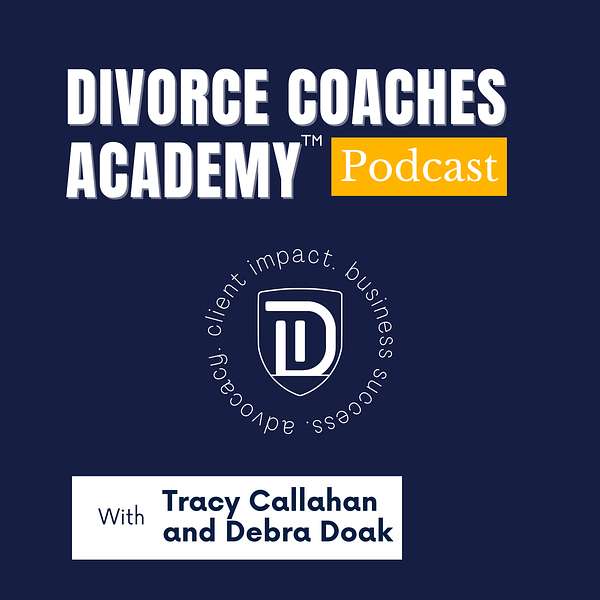
Divorce Coaches Academy
Divorce Coaches Academy podcast hosts Tracy Callahan and Debra Doak are on a mission to revolutionize the way families navigate divorce. We discuss topics to help professional divorce coaches succeed with clients and meet their business goals and we advocate (loudly sometimes) for the critical role certified divorce coaches play in the alternative dispute resolution process. Our goal is to create a community of divorce coaching professionals committed to reducing the financial and emotional impact of divorce on families.
Divorce Coaches Academy
When Good People Behave Badly: The Perfect Storm of Divorce
Send Us a Message (include your contact info if you'd like a reply)
Divorce has a reputation for bringing out surprising behaviors in otherwise composed, reasonable people. Even the most patient parent might find themselves sending aggressive texts at 2 AM. The kindest spouse might suddenly become fixated on revenge. The most logical professional might make financially devastating decisions based purely on emotion.
Why does this happen? In this episode, we explore the psychological underpinnings of why good people often behave badly during divorce. We unpack the popular saying that "criminal courts see bad people on their best day, while divorce courts see good people on their worst day" - a profound truth that helps us understand the perfect storm of emotional, practical, and identity challenges divorce creates.
When someone faces the end of their marriage, they're not just untangling a relationship - they're grieving the life they expected to have. This grief, combined with practical pressures like custody arrangements and financial concerns, pushes many into survival mode. And when we're in survival mode, our capacity for rational thinking diminishes dramatically.
As divorce coaches, we've developed specific approaches for working with clients caught in reactive emotional states. We share practical techniques for creating judgment-free spaces where clients can explore what's really happening beneath their anger, fear, or revenge fantasies. Through powerful questions that invite self-awareness, we help clients align their behavior with their true values and long-term goals.
Whether you're a helping professional working with divorcing clients or someone navigating your own divorce journey, this conversation offers compassionate insights into the emotional complexity of ending a marriage. Remember, reacting emotionally doesn't make someone a bad person - it makes them human. With the right support, these challenging moments can become opportunities for profound growth and self-discovery.
Learn more about DCA® or any of the classes or events mentioned in this episode at the links below:
Website: www.divorcecoachesacademy.com
Instagram: @divorcecoachesacademy
LinkedIn: divorce-coaches-academy
Email: DCA@divorcecoachesacademy.com